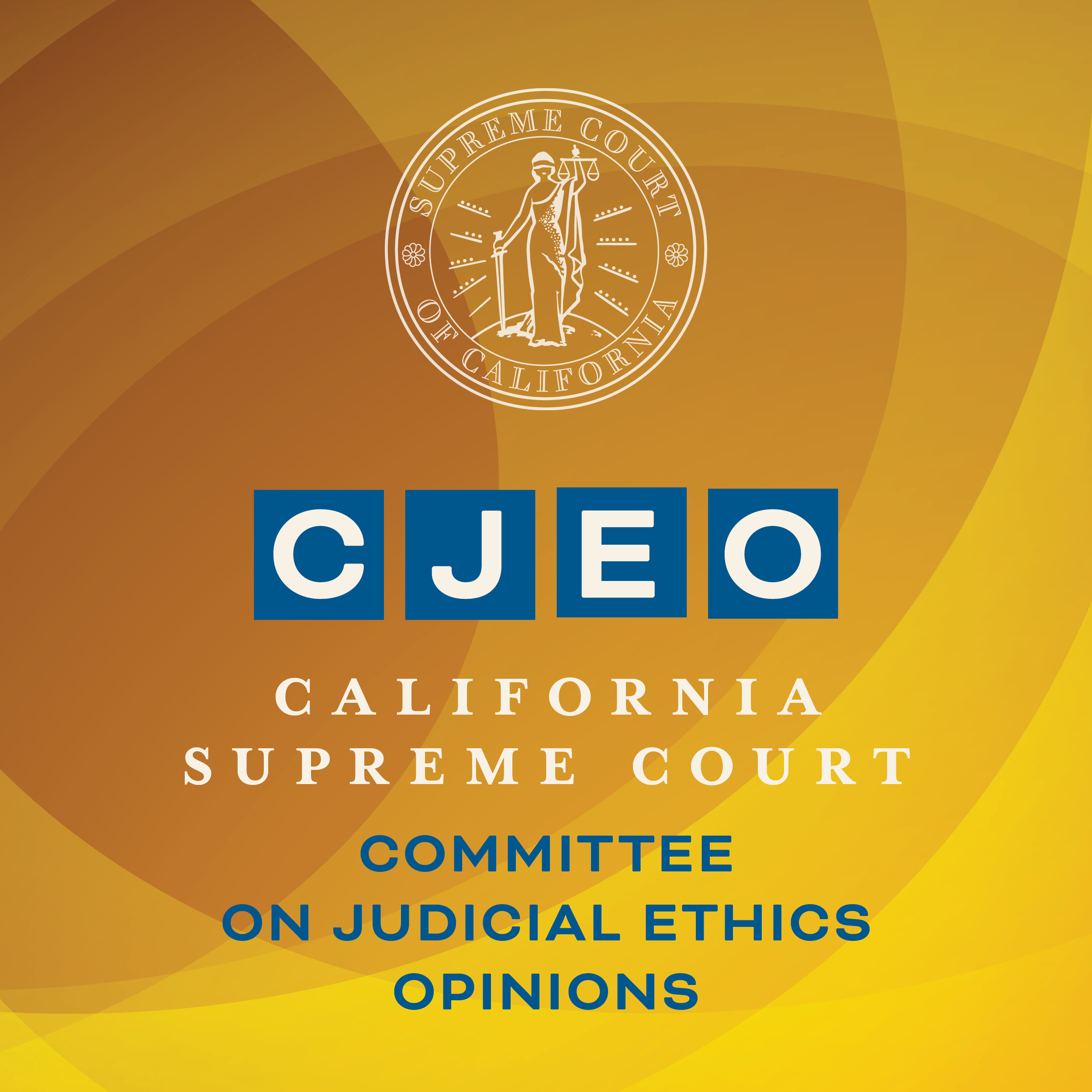Ethics Committee Advice for Justices whose Staff Attorneys Had Prior Involvement in a Matter
The Supreme Court Committee on Judicial Ethics Opinions (CJEO) has issued an expedited opinion about the obligations of an appellate justice whose staff attorney previously practiced as counsel in civil cases challenging conditions of criminal confinement.
In CJEO Expedited Opinion 2023-050, the committee concludes appellate justices have an obligation under the California Code of Judicial Ethics and the Code of Ethics for the Court Employees of California to disqualify a staff attorney from working on any part of an appellate matter in which the staff attorney’s prior service as a lawyer in the proceeding would have been disqualifying for the justice had the justice served in such a capacity. (Canon 3E(5).)
The committee advises that under canon provision 3E(5)(a), a justice’s staff attorney would be precluded from working on any criminal defendant’s appeal assigned to the justice, if, at any time:
- The staff attorney represented the criminal defendant in the criminal appeal now before the justice;
- The staff attorney represented the criminal defendant in another matter related to the same contested facts and law as that defendant’s criminal appeal; or
- The staff attorney gave advice to the criminal defendant on any issue in the criminal appeal.
Finally, the committee advises that under canon provision 3E(5)(b), a justice would have the same duty to preclude a staff attorney from working on any criminal defendant’s appeal if, within the two years prior to the justice’s assignment of the criminal appeal:
- The criminal defendant was a named class member and client of the staff attorney while in private practice;
- The criminal defendant was a named class member and client of an associate of the staff attorney while in private practice; or
- A private practice associate of the staff attorney appears in the matter assigned to the justice.
Responding to the inquiring justice’s specific question about a staff attorney’s prior service in private practice as a class action attorney, the committee advises the justice would have no duty to identify and effectively disqualify the staff attorney for any unnamed class members who remained unnamed as clients or class members of either the staff attorney or the attorney’s law associates during the two years prior to the justice’s assignment of an appeal.
“The committee is pleased to provide factors for
all justices to consider when assigning matters to appellate attorney staff with prior legal experience, as well as providing the inquiring justice with pinpointed advice about former class action service by staff,” said committee member Justice Judith Haller (ret.).
About the Committee on Judicial Ethics Opinions (CJEO)
The Committee on Judicial Ethics Opinions is a 12-member advisory committee that includes appellate justices, trial court judges, two retired judges, and a commissioner. The committee is appointed and authorized by the California Supreme Court, but its work is independent of the court, the Judicial Council, and all other entities. Its opinions are advisory and do not necessarily reflect the views of the California Supreme Court or any other entity.
The committee issues formal, informal, and expedited advisory opinions on proper judicial conduct pursuant to the California Code of Judicial Ethics and other authorities. CJEO’s website includes advisory opinions, resources dedicated to specific judicial assignments and issues, and extensive judicial ethics tools and resource materials for the benefit of the bench and the public.


